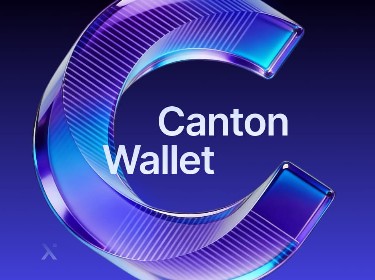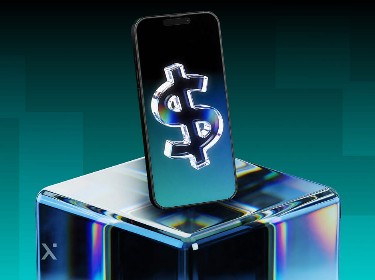Crowdfunding platforms have helped foster numerous good causes and promote innovation. Blockchain, for its part, has the potential to make crowdfunding more sophisticated and secure, while also introducing a whole bunch of cutting-edge opportunities.
Crowdfunding is generally seen as an effective alternative to venture capital. It helps promising and innovative start-ups and small businesses to get financial backing without excessive hassle and bureaucracy.
According to Statista, the global crowdfunding market was estimated at $12.27 billion in 2021 and is expected to double by 2027. This means that crowdfunding platforms will continue to grow in popularity and spur numerous businesses to turn great aspirations into momentous actions.
However, once crowdfunding embraces blockchain, it stands to become even more advanced and secure, significantly improving user experience while attracting a wider pool of investors.
Read on to find out more about how exactly blockchain can benefit and enhance crowdfunding, and discover what advanced features and solutions the technology can offer.
Understanding the basics of crowdfunding
Crowdfunding is an innovative and convenient way of raising funds to finance different kinds of projects and ventures, including startups, growing businesses, and charitable causes. It allows fundraisers to collect money with the help of social networks and online platforms over a short period of time.
Crowdfunding helps bring investors and entrepreneurs together, facilitating smooth cooperation and effective entrepreneurship. The concept also contributes to the expansion of the pool of investors and cultivates a strong community around a particular offering.
How does crowdfunding work?
Crowdfunding activities are normally carried out via special crowdfunding platforms. These are solutions that are responsible for providing an environment for convenient interaction between fundraisers and investors.
Once a creator presents their product concept, interested parties and investors evaluate it and can decide to support it financially as well as ease its smooth entry to the market. When the necessary funds have been collected, the creator can proceed with the further development and launch of their product.
What types of crowdfunding are out there?
At the moment there are multiple types of crowdfunding, the most popular being:
- Peer-to-peer lending (P2P lending)
- Rewards-based crowdfunding
- Donation-based crowdfunding
- Revenue-sharing crowdfunding
- Debt-securities crowdfunding
Each of them has its own peculiarities and adopts different approaches. Yet the main idea remains the same, which is to raise funds for a certain project or purpose.
What are the common downsides of the existing crowdfunding solutions?
Although crowdfunding has been embraced globally, it still faces some challenges and limitations. These include hefty fees, a high risk of fraudulent activity, strict regulations, lack of transparency, and weak IP security mechanisms.
Let’s consider each point in greater detail.
Large fees
Generally, crowdfunding platforms charge fees for every listed project. This can be a fixed percentage but the fee can also be taken from the raised funds. As a result, the entire crowdfunding landscape becomes less attractive for startups and their creators and prevents them from raising the funds they are chasing.
High risk of fraudulent activity
The vast majority of the existing crowdfunding solutions possess insufficient security measures, leading to security breaches that pose risks to both startups and investors.
What’s more, there have been several scam start-ups whose authenticity is hard to prove. As a result, those investors who decide to support unreliable startups by transferring funds to them run the risk of losing their money and personal data.
Complicated rules and regulations
Before a startup owner chooses a crowdfunding platform for their fundraising campaign, they have to see whether it is suitable for their purposes. Some crowdfunding apps lay down certain criteria. If the startup fails to meet them, the entrepreneur may end up rejected and won’t be able to list their proposal.
Lack of transparency
Not all crowdfunding platforms boast a high level of transparency. This means that oftentimes potential investors do not have the opportunity to track how a startup is operating. This lack of visibility contributes to distrust among parties and prevents creators from getting the funds.
Weak IP security mechanisms
Some startups fail to take care of their intellectual property, which consequently leaves them vulnerable to IP infringement. Other cunning entrepreneurs might steal their ideas from unprotected crowdfunding platforms, present them as their own, and enter the market with filched resources.
How can blockchain benefit crowdfunding?
![]()
Blockchain has the capacity to help crowdfunding platforms successfully tackle the aforementioned limitations. The distributed ledger technology can improve multiple aspects of crowdfunding and attract many more donors and creators to platforms.
Now we will look into how exactly blockchain’s capabilities benefit crowdfunding and why the technology’s transformative power is essential.
Decentralization and disintermediation as the key to more efficient crowdfunding processes
Since blockchain allows for disintermediation and decentralization, startup owners will no longer need to resort to any middlemen or external platforms to help them deal with financial transactions. As a result, fundraisers won’t be obliged to pay for intermediaries’ costly services.
Plus, compared to centralized platforms that so often impose strict requirements for startups to get listed, blockchain-powered decentralized crowdfunding solutions remove the need to abide by stringent rules. This gives early-stage projects more opportunities to get funded.
Better data protection and traceability
Thanks to its combination of time and date stamps and hash ID, blockchain contributes to greater traceability and verifiability of information on a crowdfunding platform and allows for real-time tracking and monitoring of data location.
What’s more, given that investors expect a decent level of protection for their funds, blockchain is also a wise choice because it permits only authorized transactions and guarantees their integrity.
Tokenization capabilities to attract a wider pool of investors
Blockchain-enabled tokenization can help creators draw in more donors. Potential investors may be interested in investing in a certain project if they have a small ownership stake in it.
For instance, a budding entrepreneur who is eager to raise funds for their product can consider providing investors with fractional ownership in the business that is equivalent to their contribution. This will help cultivate investor loyalty and greater interest in the project.
Smart contracts to secure transactions and money transfer
A trusted smart contract development company can help crowdfunding solutions make use of blockchain’s fully customizable smart contracts which are responsible for the totally secure execution of transactions as well as for the definition of the terms of contracts under which funds can be transferred to the creator.
In crowdfunding, smart contracts can help safely and efficiently transfer funds from an investor to a startup and eliminate any possibility of fraudulent transactions. What’s more, smart contracts are much faster compared to traditional fund transfers since they do not involve intermediaries in the processes. This enhances the overall efficiency and helps raise the capital by the deadline.
Increased trust between creators and donors due to blockchain’s immutability
Immutability is another prominent feature of blockchain, and it definitely lends a helping hand to crowdfunding. Once recorded on the blockchain, all the information about the investment campaign provided by creators in the beginning (goals, marketing materials, liabilities, and so on) is forgery-proof and impossible to change. This helps promote trust among investors and creators, as the former have the opportunity to check and verify at any time whether the latter fulfill their initial commitments.
Need professional advice on how to ensure the success of your blockchain project? Our blockchain consulting team will have you covered
Overview of blockchain-based fundraising approaches and examples of the best solutions
![]()
Blockchain technology can not only improve the crowdfunding landscape but also pave the way for a bunch of leading-edge crypto fundraising opportunities that can cater to various needs and requirements. Let’s see what each fundraising model has to offer and how it can help businesses entice more investors.
Initial coin offering
An initial coin offering, or ICO for short, is a widespread fundraising approach used for collecting funds for products or services related to cryptocurrency.
ICO trading platforms empower investors to gain unique tokens in exchange for their investments in the project. The creation and sale of a unique token helps to promote and fund further project development.
The greatest advantage of ICO is that it allows the funding of those projects that otherwise would be hard or even impossible to finance. For investors, an ICO offers a chance to purchase tokens for a song and then use them on the platform and enjoy access to its features (once it has been launched), or trade them on crypto exchanges.
ICOs are proving a great success in the crypto space. Examples of the most popular ICO projects include Ethereum, NEO, and Stratis.
Initial exchange offering
An initial exchange offering (IEO) is often viewed as an evolution of an initial coin offering. This blockchain-powered crowdfunding model is a perfect match for crypto startups and is supervised by a cryptocurrency exchange.
An IEO requires startups to develop their own tokens and send them to a crypto exchange, where they can be sold to investors on behalf of the company. An initial exchange offering is considered to be more secure than many other crowdfunding approaches because every IEO-powered project is validated by a professional technical team and is sure to drive publicity as it’s accessible to everyone.
To date, the most prominent IEO initiatives include OKEx Jumpsmart, Bittrex, and Binance Launchpad.
Security token offering
A security token offering (STO) combines the best practices of an ICO and IPO (initial public offering) and is often referred to as the tokenized version of an IPO.
A security token offering enables the sale of blockchain-based asset-backed security tokens to those investors who intend to help startups raise the funds to jumpstart their projects. These tokens possess all ownership details and represent the ownership of a range of assets, including real estate, art, and commodities.
The best thing about security tokens is that they are underpinned by blockchain technology which brings benefits such as transparency, divisibility, and instant settlement.
Among the top STO projects you will find platforms such as Resorts STO and Stokr.
Discover how our security token offering services can help innovatively revamp your business
Initial DEX offering
An initial DEX offering (IDO) is a cryptocurrency token offering which runs on a decentralized exchange (DEX). This is a relatively new and effective type of blockchain crowdfunding that empowers a project to launch a coin or token through a decentralized liquidity exchange. The first IDO ever launched was RavenProtocol.
An IDO largely relies on liquidity pools that are responsible for providing liquidity post-sale and reducing slippage and volatility. It enables users to lock in their funds and get new tokens during the token generation process.
To collect money via an IDO, a business needs to provide its tokens to a DEX which will execute the final distribution and transfer of users’ funds. The entire process is fully automated and is executed with the help of smart contracts.
Wallet holder offering
A wallet holder offering (WHO) is a trailblazing airdrop mechanism that was introduced by the SafePal wallet. The company conceived the idea for this approach in order to allow its wallet holders to enjoy the benefits of a novel token reward allocation system in a secure and decentralized way. By the end of 2021, SafePal reported having organized three WHOs on its platform.
The main goal of this airdrop approach is to correct the imperfections of conventional reward distribution campaigns. A WHO generally connects wallet users with blockchain projects and provides both parties with ample functionalities. It also allows for the effective growth of the user base and establishes great engagement with the product’s application.
Strong holder offering
A product of DAO Maker, a strong holder offering (SHO) is a fundraising approach whose aim is to draw funding from those individuals who hold a particular cryptocurrency. It is focused on supporting and promoting fundraising for blockchain and cryptocurrency startups as well as providing access to tremendous market liquidity.
In an SHO, investors are normally chosen in accordance with their on-chain activity, experience, liquidity provider status, and ability to hold crypto assets for a long period of time. This approach succeeds in creating a strong and vibrant community around the startup and empowers fundraisers to get the funding they need.
![]()
Initial farm offering
Farming per se is an investment type conducted on several DeFi platforms. To receive rewards in tokens or digital currencies, users have to lock their funds in a smart contract.
An initial farm offering is a fundraising model that helps pioneering DeFi projects to collect funds. In an IFO, a project undergoes vetting performed by DEXes and then gets permission to participate in pre-sales events.
An IFO enables projects to release their native tokens to the market and raise the desired funds from investors from across the globe. This is possible thanks to engaging multiple DeFi solutions such as swapping platforms and decentralized exchanges.
At the moment, PancakeSwap is the most popular platform for rolling out an initial farming offering. The owners of newly listed projects stand to reap the benefits of the platform’s liquidity pools and enjoy rewarding experiences.
Initial gaming offering
The growing popularity of blockchain games has helped usher in the initial game offering (IGO) concept. This fundraising option is related to non-fungible tokens and token-powered projects. An IGO provides interested investors with an opportunity to get access to in-game assets at an early stage by providing financial support for the game’s early development. Normally, IGO NFT assets comprise characters, accessories, and different tools that are needed to play the game.
The IGO crowdfunding mechanism makes it possible for investors to invest small amounts of money and generate significant ROI once the game is up and running.
There are several examples of IGO initiatives and launchpads on the market, the most popular being BSCPad, Enjinstarter, TrustSwap, and Seedify. To participate, investors need to buy the launchpad’s native tokens and lock them in a pool for a certain period of time. After this, investors will receive the project’s tokens or NFTs in line with the number of tokens locked.
Get more insights into the GameFi concept and discover how it benefits blockchain games
Initial liquidity offering
Regarded as one of the most convenient ways to launch new token projects, an initial liquidity offering (ILO) is on the rise in the crypto world.
During the ILO process, liquidity contributors get new tokens and bonuses in exchange for the liquidity (normally contributed in the form of stable coins) they provide to the pool for the AMM of those tokens.
An initial liquidity offering is considered to be an advantageous option for the release of new tokens as it helps successfully lay the ground for an ecosystem and fully-fledged market for these tokens.
For example, in April 2022 ParadoxNFT, a digital solution for crypto-collectibles and NFTs, announced that it was going to launch its $PXETH token through an ILO.
Round-up: will blockchain bring about a new crowdfunding age?
Introducing and implementing blockchain in the crowdfunding sector brings benefits for both creators and investors. The advantages of blockchain-based crowdfunding solutions include greater transparency and credibility, mutual trust among all stakeholders, secure and effective transactions and funds transfers, and better data protection and traceability.
Importantly, blockchain has opened a door to innovation in the fundraising domain too, by establishing advanced initiatives and mechanisms capable of satisfying the interests and demands of varied investors and entrepreneurs and enabling them to cash in on the latest trends.
Whenever you need professional blockchain development or consulting services, you can always rely on our NFT development agency of seasoned NFT and blockchain development experts. We will help you polish your nascent idea and bring it to life. By taking advantage of our blockchain services, your business is sure to be at the vanguard, generating impressive revenue. Drop us a line and let’s start working on your grand project today!




